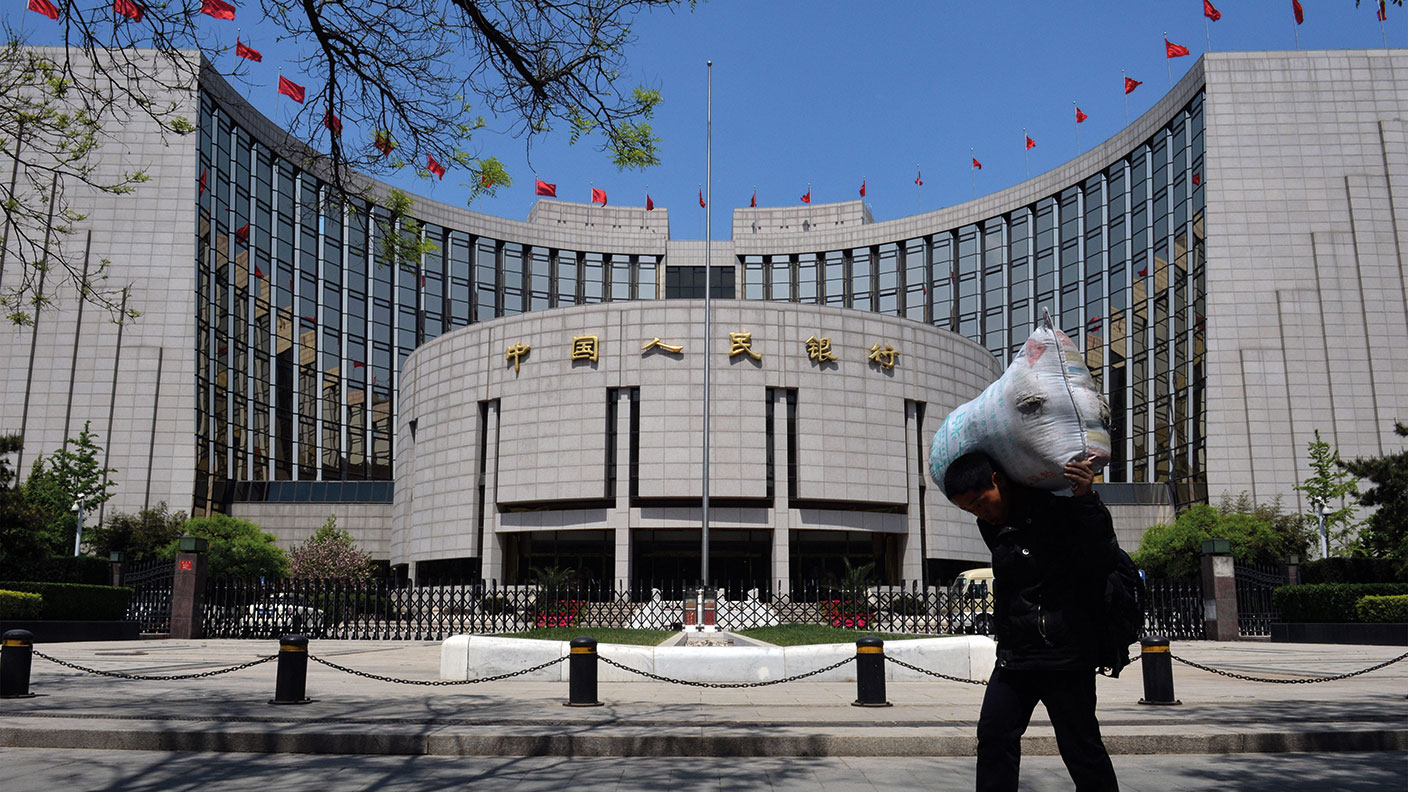Investors eye up a new round of Chinese stimulus
Chinese policymakers have announced new stimulus measures to contain the fallout from the coronavirus. Asset managers are already positioning themselves.

Get the latest financial news, insights and expert analysis from our award-winning MoneyWeek team, to help you understand what really matters when it comes to your finances.
You are now subscribed
Your newsletter sign-up was successful
Want to add more newsletters?

Twice daily
MoneyWeek
Get the latest financial news, insights and expert analysis from our award-winning MoneyWeek team, to help you understand what really matters when it comes to your finances.

Four times a week
Look After My Bills
Sign up to our free money-saving newsletter, filled with the latest news and expert advice to help you find the best tips and deals for managing your bills. Start saving today!
The People’s Bank of China (PBOC) pumped ¥1.2trn (£130bn) of extra liquidity into money markets on Monday. Banks have been told not to call in loans made to companies in Hubei, the province at the centre of the outbreak. Annualised first-quarter growth could sink as low as 4.5%; in 2019 GDP rose by 6.1%.
The new stimulus is limited for now. It is aimed at keeping the financial system running and offering targeted help to affected sectors and regions, say Chang Shu and David Qu of Bloomberg Economics. But once the virus is contained authorities are likely to shift towards a more general push to revive growth.
What would a new stimulus look like? Analysts are banking on “looser monetary policies to stimulate demand, more subsidies to bolster struggling firms, and a weaker renminbi to goose exports”, write Keith Johnson and James Palmer for Foreign Policy. The latter measure would enrage Donald Trump, who has accused Beijing of currency manipulation. Add in the fact that disruption due to the coronavirus will encourage US firms to redesign their Asian supply chains and the outbreak will “only accelerate” the ongoing “decoupling” of the US and Chinese economies.
MoneyWeek
Subscribe to MoneyWeek today and get your first six magazine issues absolutely FREE

Sign up to Money Morning
Don't miss the latest investment and personal finances news, market analysis, plus money-saving tips with our free twice-daily newsletter
Don't miss the latest investment and personal finances news, market analysis, plus money-saving tips with our free twice-daily newsletter
Asset managers are already positioning themselves for a new round of stimulus, says Michael Mackenzie in the Financial Times. As well as boosting emerging market equities, any Chinese easing could “move the needle for the global economy”. But “wait and see what kind of stimulus arrives from China” before piling in. It remains to be seen whether all this talk of “buying the dip” is just short-term trading chatter, or whether it marks the start of a brighter period for cyclical stocks.
Get the latest financial news, insights and expert analysis from our award-winning MoneyWeek team, to help you understand what really matters when it comes to your finances.
Alex is an investment writer who has been contributing to MoneyWeek since 2015. He has been the magazine’s markets editor since 2019.
Alex has a passion for demystifying the often arcane world of finance for a general readership. While financial media tends to focus compulsively on the latest trend, the best opportunities can lie forgotten elsewhere.
He is especially interested in European equities – where his fluent French helps him to cover the continent’s largest bourse – and emerging markets, where his experience living in Beijing, and conversational Chinese, prove useful.
Hailing from Leeds, he studied Philosophy, Politics and Economics at the University of Oxford. He also holds a Master of Public Health from the University of Manchester.
-
 Early signs of the AI apocalypse?
Early signs of the AI apocalypse?Uncertainty is rife as investors question what the impact of AI will be.
-
 Reach for the stars to boost Britain's space industry
Reach for the stars to boost Britain's space industryopinion We can’t afford to neglect Britain's space industry. Unfortunately, the government is taking completely the wrong approach, says Matthew Lynn
-
 UK wages grow at a record pace
UK wages grow at a record paceThe latest UK wages data will add pressure on the BoE to push interest rates even higher.
-
 Trapped in a time of zombie government
Trapped in a time of zombie governmentIt’s not just companies that are eking out an existence, says Max King. The state is in the twilight zone too.
-
 America is in deep denial over debt
America is in deep denial over debtThe downgrade in America’s credit rating was much criticised by the US government, says Alex Rankine. But was it a long time coming?
-
 UK economy avoids stagnation with surprise growth
UK economy avoids stagnation with surprise growthGross domestic product increased by 0.2% in the second quarter and by 0.5% in June
-
 Bank of England raises interest rates to 5.25%
Bank of England raises interest rates to 5.25%The Bank has hiked rates from 5% to 5.25%, marking the 14th increase in a row. We explain what it means for savers and homeowners - and whether more rate rises are on the horizon
-
 UK inflation remains at 8.7% ‒ what it means for your money
UK inflation remains at 8.7% ‒ what it means for your moneyInflation was unmoved at 8.7% in the 12 months to May. What does this ‘sticky’ rate of inflation mean for your money?
-
 Would a food price cap actually work?
Would a food price cap actually work?Analysis The government is discussing plans to cap the prices of essentials. But could this intervention do more harm than good?
-
 Is my pay keeping up with inflation?
Is my pay keeping up with inflation?Analysis High inflation means take home pay is being eroded in real terms. An online calculator reveals the pay rise you need to match the rising cost of living - and how much worse off you are without it.